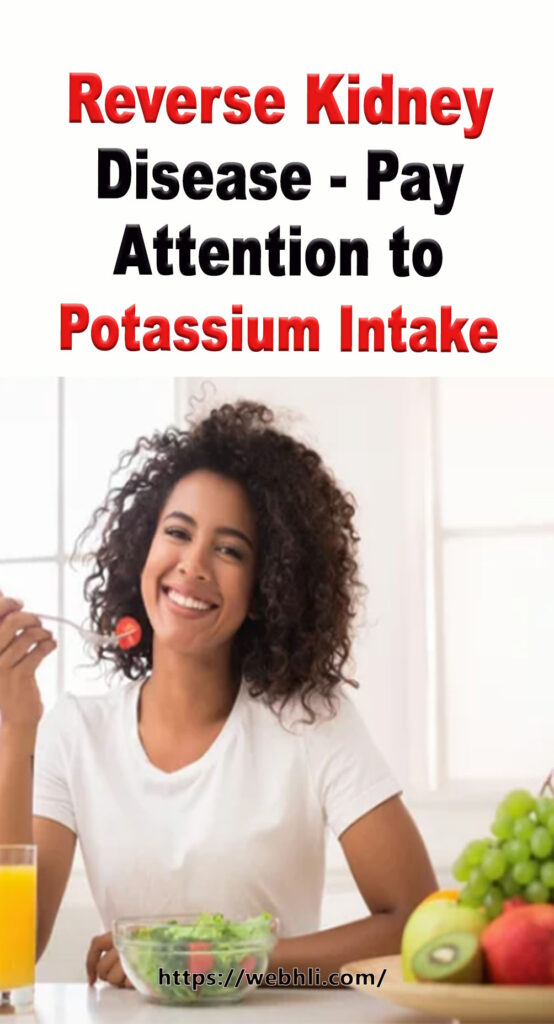
Thousands of people are diagnosed every year with kidney disease. Much research has been done in the medical field, but no cure has been found. But, there are some natural methods that are proving to be of great success, and some are even obtaining a complete reversal in their kidney disease.
If you are suffering from kidney failure you are at a high risk for potassium metabolism disturbance. Test may reveal that you have a high levels of potassium in your body due to the kidney failure. Healthy kidneys do a good job of regulating potassium and other minerals in your body, but when the get diseased or weak, they can't continue to do their job properly.
Some of the signs of high potassium levels in your blood are, muscle weakness, nerve problems, digestive problems, nausea, stomach pain, fatigue, cramping, and vomiting. If you experience any of these symptoms you should check with your health care professional immediately. You may need to limit your intake of potassium.
Good Energy Food for Diabetics
10 Simple Food Concepts Every Person Living With Diabetes Should Know
Making Cheesecake For Diabetics
Enjoy the Taste and Benefits of Diabetic Foods
Will The Mulberry Leaf Help Your Diabetes?
5 DIABETIC FRIENDLY SALADS Some Tasty
DIABETIC LEMON COCONUT COOKIES Some Tasty
50 Healthy Diabetic Recipes That Are The Best
Your body cannot get rid of excessive potassium and other waste products if your kidneys are not working properly. If your kidney function is 50% or less you should be on a low-protein, low-potassium diet unless you are that rare individual that can consume potassium freely. Be sure and have your health care professional keep a constant check on your potassium levels.
Most suffers of kidney disease will need to control their diet in order to keep they potassium intake low. But, there is a small percentage of patients that have no problem handling potassium.
To much potassium in your body will cause low levels of blood calcium and muscle weakness. This will often cause cardiac arrhythmia, (irregular heart beat) excessive acidity, and can lead to a heart attack and death.
The Recommended Potassium Intake For Kidney Disease Patients
An ideal range of potassium intake is between 1500mg-2500mg a day. If you are suffering from kidney failure, you should try to avoid foods that are rich in potassium such as salmon, lobster, beans, dried fruits, tomatoes, and potatoes. Read labels carefully and avoid canned foods as much as possible.
Foods To Choose
You should try to include foods in your diet that have less than 250mg. of potassium per serving. Low potassium foods include berries, peaches, grapes, plums, tangerines, kale, asparagus, chicken, eggs, and onions. Most all foods will contain some potassium.
Avoid or Reduce Intake of These Foods
These foods have more that the recommended amount of 250mg. of potassium. Most all dairy products and vegetables such as avocados, corn, spinach, potatoes, bananas, apples, watermelon, beans, and oranges. You can find several different list of foods you should avoid and the ones you are allowed to eat online.
Check out these related articles, too:
Bitter Melon Recipe For Diabetes
Control Your Diabetes Better With These Helpful Tips
Gastroparesis - A Challenge to Control
Blood Sugar Control and Diet - A Plan to Reverse Diabetes
Diabetes Natural Home Remedies – Worth a Try?
Can Magnesium Prevent Diabetes?
Zinc Shown to Promote Insulin Production In Diabetics
Prevent Side Effects From Diabetes Drugs
Considerations
Remember, if you have kidney disease, your kidneys are not able to get rid of the excess potassium fast enough. You may experience heart and blood pressure problems. Therefore, you will need to watch your diet very carefully.
You may also try soaking your vegetables in water before using them. This method is called 'potassium leaching.' It allows the water to pull out the potassium ions from the vegetables.
To receive your Guide to Reverse Kidney Disease Naturally [http://www.reversekidneydisease.net/], a free 10 day course, be sure to check out my blog articles. You'll find everything you need to get started.
Article Source: http://EzineArticles.com/8010905

 Protected by Patchstack
Protected by Patchstack